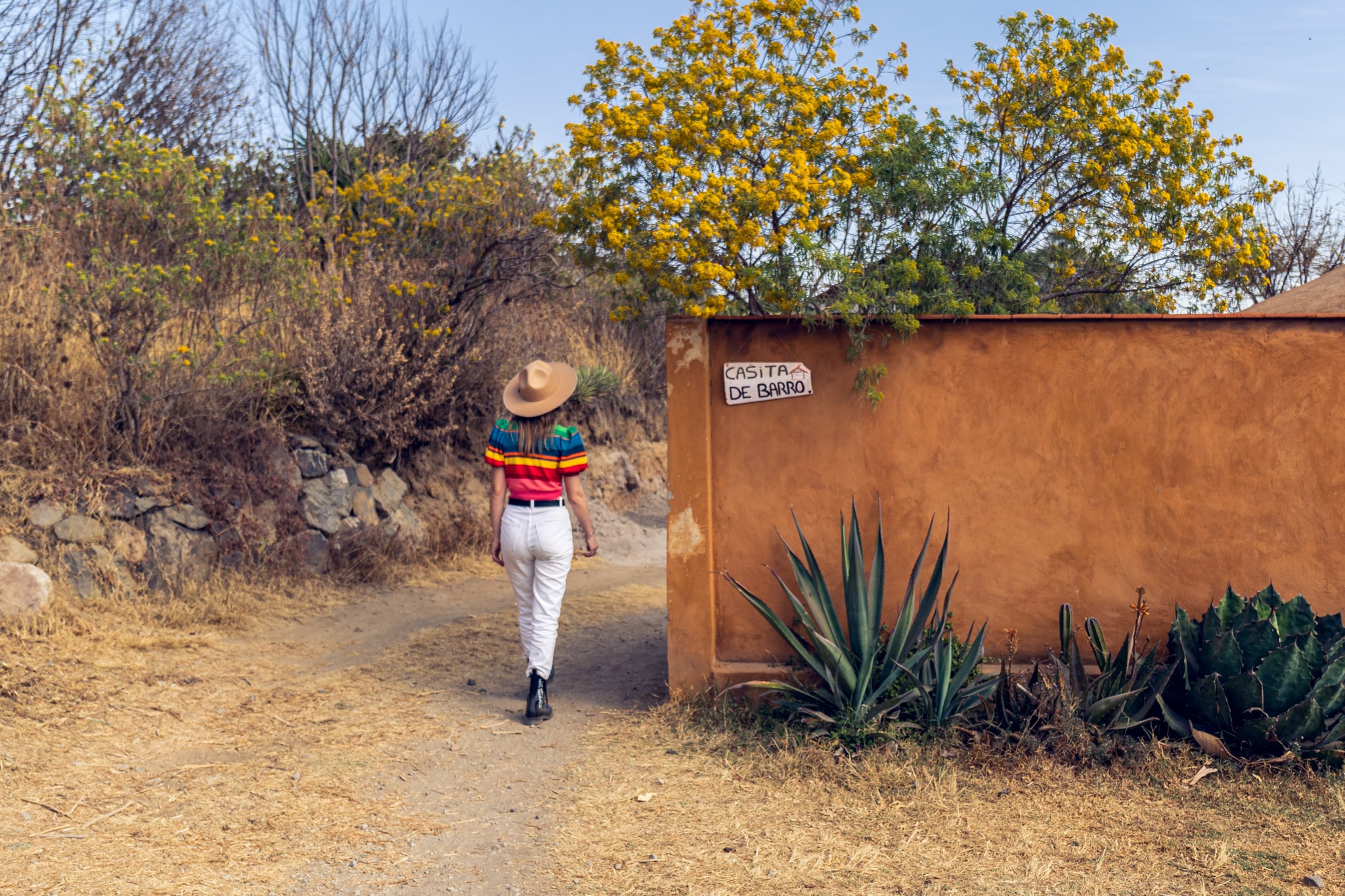Stay for Good at Puebla: Casita de Barro
Nestled at the foothills of the Popocatépetl volcano in southeast Mexico, is the small town of San Jerónimo Tecuanipan. Though less than an hour’s drive from Puebla, this rural village feels worlds apart from the city’s vibrant marketplaces, bustling universities, and magnificent historical architecture.
Tecuanipan is a place where locals thrive as one with nature, growing and trading crops such as corn, beans, coffee beans, and avocadoes on the land’s fertile volcanic soil. Unfortunately, poor education and lack of job opportunities outside the agricultural industry has influenced a mass migration trend, where one in six locals leave to find work in America.
Little House of Clay
In 2008, Manuel Palma Barbosa and Ina Vanooteghem arrived in Tecuanipan equipped with a background in Latino education, and a desire to understand the reasons behind the migration.
They eventually established Casita de Barro (literally translated to mean “little house of clay”) to help restore traditional environmentalism as a tool to achieve social justice by sharing knowledge with the community and helping local youth re-plant roots in Tecuanipan.
Returning to farming roots
In recent times, ancient farming techniques and campesino people (farmers) have been devalued in the face of modernity, and where industrial and chemical food production systems have been able to dominate, traditional farming methods have fallen out of favour.
However, Casita de Barro has made it their mission to mend the broken ties between natural farming processes, Mother Earth, and self-sufficiency, by restoring the value of cooperative work.
They do this by exploring traditional farming techniques and optimising them to be more modern and sustainable, while also spreading environmental awareness among the local youth, who often view the campesino way of life as a sign of poverty.
Its educational programme guides the revival of traditional agricultural processes, while encouraging creativity in fusing traditional and modern practices in an efficient manner. Over the years, this has blossomed into a campesino school, focusing on rediscovering a life in harmony with nature and contributing to the local economy through ecological food production.
Further outreach
Manuel and Ina’s hospitality extends beyond the local community, as they also welcome international guests with opportunities to try their hand at immersive cooking and heritage-based farming experiences.
Visitors can take a tour of the house to learn key elements of a simple, sustainable lifestyle, or take a workshop on making corn tortillas from scratch. Those with more specialised interests can even plant a tree while learning the principles of agroecology, such a soil restoration, bioinputs, and crop rotation, or learn to construct a wall using a cob technique.
In addition, guests are also able to purchase natural products from the farm that are sold under the brand name Semilla 5, ranging from herbal tinctures to dried fruits, to jams and preserves.
Not only does this spread the word about sustainable living, it also shows local campesino farmers some examples of economic opportunities they could harness for mthemselves. Ultimately, this contributes towards Casita de Barro’s long-term goal of reigniting the spark for community cooperation, and engaging locals to work towards more sustainable ways of living.
Visit Casita de Barro and experience a simpler, sustainable way of life when you stay at the exquisite Banyan Tree Puebla.
